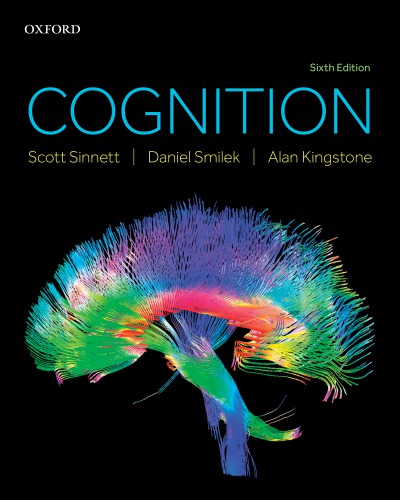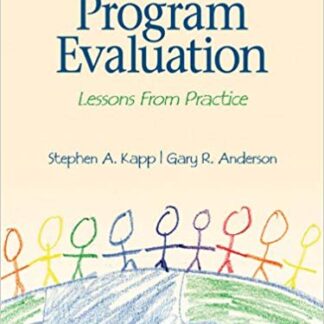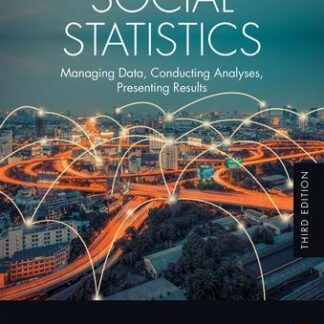Description
Cognition 6th Edition by Scott Sinnett, ISBN-13: 978-0199019700
[PDF eBook eTextbook]
- Publisher: Oxford University Press; 6th edition (December 20, 2016)
- Language: English
- ISBN-10: 0199019703
- ISBN-13: 978-0199019700
This engaging guide to the hidden corridors of the mind explores the mental processes through which we interact with the world. Drawing on the work of esteemed researchers and scholars, Cognition applies real-life examples to key theories in order to create an accessible, yet comprehensive primer to the field.
Table of Contents:
1. Introduction
Case Study: What Is Cognition?
Cognitive Psychology and Information Processing
Information Theory
Models of Information-Processing
Ecological Validity
Metacognition and Cognitive Psychology
The Range of Cognitive Psychology
2. Cognitive Neuroscience
Case Study: Head Office
The Brain as the Organ of the Mind
The Relation between Mind and Brain
Methods in Cognitive Neuroscience
3. Perception
Case Study: An Unusual Perceptual Experience
The Physiology of Visual Perception NEW
The Ventral Pathway and Object Recognition
Context and Feedback Effects in Perception
The Dorsal Pathway and the Relation between Perception and Action
Interactions Between the Ventral and Dorsal Pathways
Multimodal Perception
4. The Varieties of Attention
Case Study: A Total Wreck
James’s Description of Attention
Selective Attention
Dual Tasks and the Limits of Attention
Task Switching
Sustained Attention NEW
Overt Visual Attention
5. Memory Systems
Case Study: What Was That Movie . . . ?
Understanding Memory Systems NEW
Modal Model of Memory
– Sensory Memory NEW
– Short-Term Memory NEW
– Long-Term Memory
Working Memory
Further Developments in Memory Systems Theory
Connectionist Models of Memory
Aging and Memory Disorders
6. Memory Traces and Memory Schemas
Case Study: When Memory Fails
Introduction
Schema-based Theories of Memory
Scripts
Autobiographical Memory NEW
Levels of Processing
Two Approaches to Memory Research
7. Imagery
Case Study: Time-Space Synesthesia and Number Forms
Memory and Imagery
Synesthesia and Eidetic Imagery
Mental Rotation
Egocentric Perspective Transformations
Controversy over the Nature of Mental Imagery
Cognitive Maps and Mental Models
Auditory Imagery NEW
8. Concepts
Case Study: Grasping a New Concept
The Classical Approach
Learning Complex Rules
Wittgenstein’s Analysis of Concepts
Rosch and Prototypicality
Embodied Cognition
Folk Biology
9. Language
Case Study: Reading in the “Olden Days”
The Structure of Language – The Building Blocks of Language NEW
Transformational Grammar
The Innateness Hypothesis
Communication and Comprehension
The Social Context of Language
Language, Cognition, and Culture
10. Problem-Solving
Case Study: Vaccinating in the Wake of Wakefield NEW
Insight Problems and the Gestalt Theory of Thinking
Current Approaches to Insight Problems
Functional Fixedness and the Design of Tools
The Flexibility-Rigidity Dimension
Artificial Intelligence Approaches to Problem-Solving
Thinking Aloud as a Method for Studying Human Problem-Solving
Can Computer Programs Experience Insight?
Solving Problems in Science
11. Reasoning, Judgment, and Choice
Case Study: The (In)famous Hockey Stick NEW
Reasoning
Judgment and Choice
Ecological Rationality
Training in Statistical Reasoning
12. Intelligence and Creativity
Case Study: A Child Prodigy
The Concept of Intelligence: Historical Background
General Intelligence (g)
The Flynn Effect
Sternberg’s Theory of Successful Intelligence
Howard Gardner and the Theory of Multiple Intelligences
Expertise
Creativity
13. Consciousness NEW
Case Study: Blindsight
Distinguishing among Different Levels of Consciousness
Unconscious Perception?
Consciousness and the Grand Illusion?
Meta-consciousness?
Consciousness and the Brain?
Deficits of Consciousness
Glossary
Note: All chapters end with
– Summary
– Case Study Wrap-Up
– Key Concepts
– In the Know: Review Questions
– Links to Other Chapters
– Further Reading
Scott Sinnett, Assistant Professor, University of Hawai’i at Manoa, Daniel Smilek, Associate Professor, University of Waterloo, Alan Kingstone, Professor, University of British Columbia
What makes us different?
• Instant Download
• Always Competitive Pricing
• 100% Privacy
• FREE Sample Available
• 24-7 LIVE Customer Support




